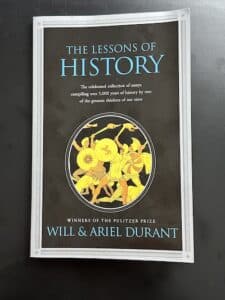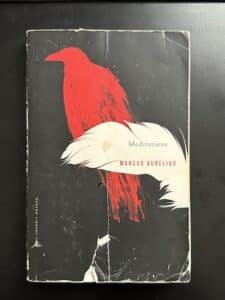11 Best Books On Decision Making to Read in 2024
Reading great books will allow you to improve your decision-making skills and create a better life. When you make better decisions, you build a more meaningful career, develop healthier relationships, and avoid the pain and regret that stem from making bad decisions.
Below are 11 of the best books for becoming a better decision-maker.
1. Mistakes Were Made (But Not by Me) by Caroll Tavris and Elliot Aronson
“Most people, when directly confronted by evidence that they are wrong, do not change their point of view or course of action but justify it even more tenaciously. Even irrefutable evidence is rarely enough to pierce the mental armor of self-justification.”
In this book, researchers Tavris and Aronson explore the psychology of self-justification, which is our tendency to self-justify everything that we do and believe. This book will help you understand the dangers of self-justification, develop a healthy skepticism about the reliability of your memory and beliefs, and identify ways that you can protect yourself from your psychology.
Some of the specific topics you will learn about:
- How we will do everything in our power to avoid cognitive dissonance
- Why fraternity hazing creates strong social bonds
- Why you should not trust “experts”
- How to get an honest man to do bad things
- Why and how we form stereotypes
- How your memory is unreliable
- The myth of repressed memories
- How the stories you tell are ruining your love life
- How to combat the dangers of self-justification.
More than anything, this book will allow you to understand yourself and others better. This deepened understanding of the human experience will lead you to make better decisions.
2. Thinking, Fast and Slow by Daniel Kahneman
“Our comforting conviction that the world makes sense rests on a secure foundation: our almost unlimited ability to ignore our ignorance.”
In this book, Daniel Kahneman, one of the founding fathers of the psychology of decision making and judgment, introduces us to the two primary systems of thinking and the many cognitive biases that inhibit us from making good decisions.
Some of the specific topics you will learn about:
- Your fast and intuitive System 1 and your deliberate and logical System 2
- How your experiencing self differs from your remembering self
- When to trust your intuition
- The role of chance in your successes and failures
- How priming and anchoring affect your perceptions
If you have never learned about cognitive biases, this book is a must-read.
3. How to Lie With Statistics by Darrell Huff
“The secret language of statistics, so appealing in a fact-minded culture, is employed to sensationalize, inflate, confuse, and oversimplify.”
Most of the statistics we see and use are garbage. In a fun and engaging way, Darrel Huff reminds you of the elementary principles of statistics and teaches you how to avoid getting deceived by the numbers you see in the news and at work.
Some of the specific topics you will learn about:
- How people use statistics to deceive you
- Why getting a random sample is almost impossible
- The dangers of using an “average”
- The one-sided bias of statistics
- How to properly evaluate a statistic
Regardless of what field you work in, this book will improve your ability to understand, evaluate, and use statistics.
4. The Lessons of History by Will and Ariel Durant
“Those who cannot remember the past are condemned to repeat it.” – George Santayana

This concise and thematic account of history will help you understand the biological, social, economic, and philosophical patterns of history. With this knowledge, you’ll be equipped to capitalize on the lessons that work and avoid the ones that don’t.
Some of the specific topics you will learn about:
- The three biological lessons of history
- The relationship between freedom and equality
- How our recent evolution is primarily social
- How the young and old balance on another
- The purpose of education
While you can read this book in a few hours, I also recommend Sapiens by Yuval Harari, which is another fantastic account of human history that will improve your decision making.
5. Poor Charlie’s Almanack: The Wit and Wisdom of Charles T. Munger by Charlie Munger
“You need to have a passionate interest in why things are happening. That cast of mind, kept over long periods, gradually improves your ability to focus on reality. If you don’t have the cast of mind, you’re destined for failure even if you have a high I.Q.”
A fascinating look into the life of Charlie Munger, the legendary investor and partner of Warren Buffet. Charlie has been successful by mastering a multidisciplinary approach to the pursuit of truth, living by good values, and making the best decisions possible.
Some of the specific topics you will learn about:
- Why studying only one discipline is a fatal trap
- Why avoiding mistakes is better than pursuing wins
- How learning from other fields will improve your decision making
- The unique power of inversion
- Why you should beware of envy
- The psychology of human misjudgment
Studying Munger’s approach will be well worth your time. He is a master of decision making. If you enjoy Munger’s approach to life, then read Peter Bevelin’s Seeking Wisdom: From Darwin to Munger.
6. Meditations By Marcus Aurelius
“When you wake up in the morning, tell yourself: The people I deal with today will be meddling, ungrateful, arrogant, dishonest, jealous, and surly. They are like this because they can’t tell good from evil. But I have seen the beauty of good, and the ugliness of evil, and have recognized that the wrongdoer has a nature related to my own—not of the same blood or birth, but the same mind, and possessing a share of the divine. And so none of them can hurt me. No one can implicate me in ugliness.”

This is a life-changing collection of philosophical and spiritual thoughts from the former Roman emperor Marcus Aurelius. The work is grounded in Stoicism, a practical philosophy that encourages us to keep our mortality in mind at all times, view things as they are, reflect thoughtfully, focus on what’s within our control, and practice virtues like generosity, honesty, and self-control.
Some of the specific topics you will learn about:
- How to think about people
- Working with purpose
- The need to hurry
- The value of better perception
- The obstacle is the way
- How to act in line with your values
7. Getting More: How You Can Negotiate To Succeed In Work And Life By Stuart Diamond
“It is much more persuasive to let others make the decision, instead of telling them what the decision should be. You want to lead them to where you want them to go, through framing and by being incremental.”
A fantastic introduction to negotiation and learning how to get more as a way of life. Diamond challenges the conventional wisdom of using power and logic to negotiate. Instead, he proposes that effective negotiation stems from understanding, valuing, and communicating with the person between you and your goals. A few key learnings include the power of persistence, understanding perceptions, framing and using standards, being incremental, and trading items of unequal value.
Some of the specific topics you will learn about:
- The purpose of negotiation
- The value of persistence
- How to identify common enemies
- Emotions vs. rationality
- The value of making small talk
- Dealing with hard bargainers
- Framing and being incremental
- Finding intangibles
8. Essentialism: The Disciplined Pursuit of Less by Greg Mckeown
“Essentialists spend as much time as possible exploring, listening, debating, questioning, and thinking. But their exploration is not an end in itself. The purpose of the exploration is to discern the vital few from the trivial many.”
A compelling philosophy about living consciously, focusing on the essential few things that fulfill you, and designing your life to achieve your highest point of contribution. McKeown highlights the danger in failing to recognize tradeoffs, the necessity of learning to say no, and the importance of play and sleep.
Some of the specific topics you will learn about:
- The fallacy of business
- The value of reflecting on life’s brevity
- Reality of tradeoffs
- The value of play
- How to say no respectfully
- Questions for effective prioritization
- The power of routine
9. A Random Walk Down Wall Street: Including A Life-Cycle Guide To Personal Investing By Burton Malkiel
“It is not hard to make money in the market. What is hard to avoid is the alluring temptation to throw your money away on short, get-rich-quick speculative binges. It is an obvious lesson, but one frequently ignored.”
A Random Walk Down Wall Street is a classic guide that blends history, economics, market theory, and behavioral finance to offer practical and actionable advice for investing and achieving financial freedom. Malkiel’s central message is abundantly clear – begin a consistent savings plan as early as possible and invest the core of your portfolio in low-cost, broad-based index funds.
Some of the specific topics you will learn about:
- How to make good investing decisions
- The 3 primary theories of investing
- Modern portfolio theory
- Common biases that plague people
- The power of incentives
- How to take action in an uncertain future
10. The Power Of Now: A Guide To Spiritual Enlightenment By Eckhart Tolle
“If you find your here and now intolerable and it makes you unhappy, you have three options: remove yourself from the situation, change it, or accept it totally.”
Eckhart Tolle explores presence, thinking, and spirituality to help you understand what presence means, how thinking and non-acceptance drive a lot of human pain, and how to live a life that reduces suffering.
Some of the specific topics you will learn about:
- How to deal with unpleasant situations
- Why complaining is toxic
- How your mind influences relationships
- The value of acceptance
- The power of compassion
11. The Obstacle Is the Way: The Timeless Art of Turning Trials into Triumph by Ryan Holiday
“Whatever we face, we have a choice: Will we be blocked by obstacles, or will we advance through and over them?”
A practical and actionable philosophy on how to perceive, act, and thrive in an uncertain and changing world. Leveraging the wisdom of the Stoics, Holiday explains how we can deliberately improve the way we perceive the world and find the opportunities in the obstacles we face.
Some of the specific topics you will learn about:
- How to overcome obstacles
- The futility of blaming others
- The power of perception
- How to focus on what you control
- How to make good actions
- The value of breaking the rules
- The importance of will
And that’s it! This list is just a starting point, but if you read all 11 of these books, you will undoubtedly emerge a better decision-maker.
For more great books that will improve the quality of your life, you can check out my curated list of insights from 100+ books, 28 Books That Will Expand and Open Your Mind, and 40 Best Self-Help and Personal Growth Books.

